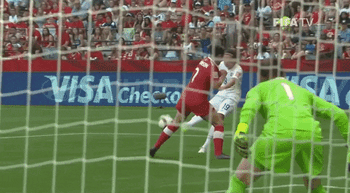How athletes are paving the way to prioritize mental health in sports

🤎 Black women leading the way
Across industries, Black women have laid the groundwork for change that benefits everyone. In sports, a handful of athletes have used their platforms to highlight the importance of mental health, but none have done so as loudly and as publicly as gymnast Simone Biles, tennis star Naomi Osaka, and WNBA MVP A’ja Wilson.
🤸🏿♀️ Simone Biles: The aforementioned Olympian had the weight of the world on her shoulders heading into the 2020 Tokyo Olympics as she was set to become the most decorated American gymnast in Olympic history.
- Biles’ unprecedented withdrawal — to protect her “body and mind” — sparked discussions about the sacrifices elite athletes make to perform at the highest level.
- Since then, she’s prioritzed having mental health awareness and wellness included in her brand-work with companies like Athleta, while reminding her peers, like the world’s most decorated alpine skier, Mikaela Shiffrin, they aren’t alone.
���🎾 Naomi Osaka: Not long before Biles, Osaka made headlines when she pulled out of the 2021 French Open to protect her well-being. Her original intention was to participate in the tourney, but not in post-match press conferences — Osaka had been suffering from depression since 2018 and limiting iteractions with media was better for her mental health.
- But the tournament, which requires media appearances for athletes, fined Osaka $15,000 (!!!) and threatened suspension for skipping the presser after her first match, essentially forcing Osaka’s hand to withdraw.
- The move gave rise to debates around athlete expectations, shining the spotlight once again on the need for stronger support and a better understanding of mental health in the sports world.
🏀 A'ja Wilson: Though Wilson led the Las Vegas Aces to the 2020 WNBA Finals winning MVP in the process, the unprecedented “Wubble” season left her feeling “empty,” and she struggled with the immense weight of feeling like she let her team down.
- Soon after, Wilson penned an emotional essay for The Players’ Tribune titled “Dear Black Women.” In it, Wilson addressed the challenges Black women in sports face including dealing with stereotypes and systemic racism, on top of the pressure to perform.
- While introducing readers to the real A’ja, Wilson highlighted the importance of understanding athletes’ mental health and emphasized, once again, the burden Black women too often face in leading the way for change.
💪 Mental health and masculinity
Men have long been conditioned to hide their emotions rather than discuss them, and the same is true in sports. All athletes are expected to be tough and strong, and the fear of being perceived as weak leads many to suffer in silence. However, a few prominent male athletes have helped change the narrative, publicly sharing their emotional and mental hardships.
🏀 DeMar DeRozan: In early 2018, then–Toronto Raptors star DeMar DeRozan tweeted about his struggles with depression despite having an incredibly successful season. DeRozan later spoke openly about his ongoing mental health battles that began when he was a child, and his vulnerability resonated with many, including fellow players.
🏀 Kevin Love: Inspired by DeRozan, NBA veteran Kevin Love candidly wrote about his decades-long battle with depression and anxiety after suffering a panic attack during a game. The then–Cleveland Cavalier wrote about feeling like he had to bottle up his emotions due to the stigma.
- Love has since created the Kevin Love Fund, which aims to provide tools, resources, and support for mental health education and awareness.
🏈 Calvin Ridley: In October 2021, NFL wide receiver Calvin Ridley announced he would be taking a break from football to prioritize his mental well-being. Ridley explained that he was dealing with personal struggles and needed to focus on his mental health.
- But just as Ridley was preparing to return in 2022, the then–Atlanta Falcon was banned for the entire season for violating the NFL’s gambling policy.
- In an essay, Ridley apologized for the mistake and the role his mental health played in it, ultimately using the suspension as an opportunity to improve both his mental and physical well-being.
🏊 Michael Phelps: Despite his success in the pool,the world’s most decorated Olympic athlete, Michael Phelps, also opened up about his long-term battle with anxiety, depression and suicidal thoughts. He’s since used his platform to talk about the importance of seeking mental health support and sharing your struggles.
- This month, Phelps teamed up with Talkspace for the “Celebrate Every Step” campaign to raise awareness about the benefits of therapy.
🤔 The yips
How your mind and body can impact your performance is vast. As we mentioned, Biles suffered from a case of the “twisties”during the Tokyo Olympics in 2020. And she’s not alone, as many other athletes have also been affected by this psychological phenomenon over the years, sparking discussions about what they are and why they happen.
Don’t let the cute names fool you: The twisties — aka the “yips” — can be dangerous, especially in a sport like gymnastics. The yips is a catch-all term popularized by pro golfer Tommy Armour in the early 20th century to describe his sudden inability to make short, easy putts.
Sometimes known as Lost Move Syndrome (LMS), the sudden disorientation and loss of coordination is a well-known disorder in many sports and can often come about randomly.
- The disorder causes involuntary muscle spasms or tics in many athletes, with some describing the feeling as a neurological glitch or short circuit in the brain.
- The yips can cause elite athletes to lose muscle memory and the ability to perform basic functions of their sport, and prolonged affliction has resulted in many athletes, including Armour, giving up their game altogether.
But here’s what the yips aren’t: They're not performance anxiety, stage fright, or choking. They’re not an excuse for a bad performance or a result of a superstition, and they’re definitely not “all in your head.”
- They’re not necessarily caused by overthinking, underthinking, or a loss of confidence or ability either. And most frustratingly, they’re not easily cured.
- There’s no magic pill to fix the yips, and episodes can last for days, weeks, or months. Sports psychologists recommend breathing and meditation techniques, continued practice, therapy, and lots of patience.
🌟 The future
Athletes, coaches, teams, and leagues are realizing that mental health is just as important as physical health, and many are putting their money where their mouth is.
The NFL, in partnership with the NFL Players Association (PA), established a Comprehensive Mental Health and Wellness Committee in 2019, which includes a panel of doctors and requires each team to have a mental health professional on staff.
In 2018, following both DeRozan’s and Love’s candid conversations about their mental health, the NBA and the NBPA announced a mental wellness program that inspired the W to follow suit.
Just last year, the NWSL penned an unprecedented mental health policy within the league’s first-ever collective bargaining agreement. Now, players are legally entitled to up to six months of paid mental health leave.
Also in 2022, the WTA announced a partnership with Modern Health, a global workplace mental health platform that offers a support network for players.
While addressing mental health and mental health-related issues in the sports world has become much more common, there’s still a long way to go to rid the industry of the stigma that plagues it.
- But as more athletes speak up and organizations create more programs and resources to support them, there’s hope that the relationship between the sports world and athletes’ mental health will only continue to improve.
Enjoying this article? Want more?

Sign up for The GIST and receive the latest sports news straight to your inbox three times a week.

